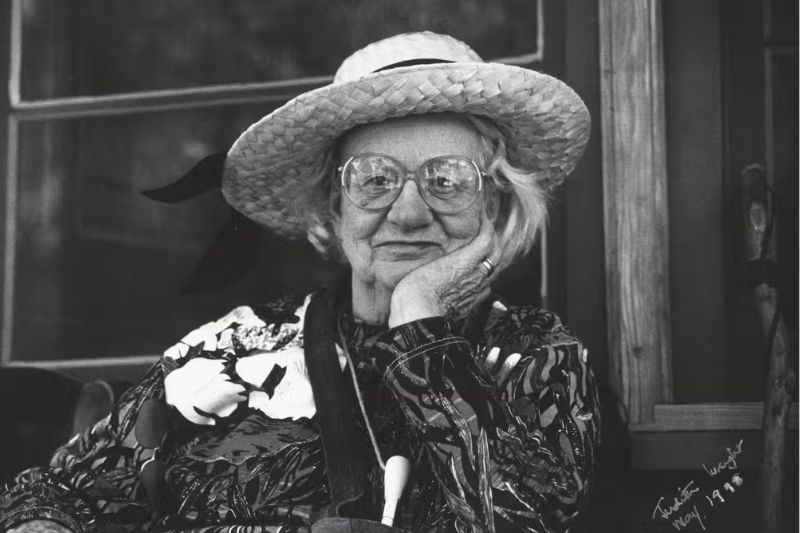Being a volunteer in my local community library, I get to tidy the shelves one morning every week. Now and then a book takes me by surprise. Last week I noticed Judith Wright: Selected Writings, edited by Georgina Arnott, recently published by La Trobe University Press. The book included an excerpt from We Call for a Treaty, written by Judith Wright and H.C. Coombes on behalf of the Aboriginal Treaty Committee in 1985. Perhaps, if history can teach us anything, lessons might be learnt here.

As we now know, Judith Wright and H.C. Coombes were, very privately, partners in life for over two decades. She was one Australia’s greatest poets as well as a committed activist, especially on care for the environment and in the promotion of Aboriginal writing.
He, on the other hand, was possibly Australia’s greatest public servant, being among many other things the Director-General of the Department of post-war Reconstruction, Governor of the Reserve Bank, Chairman of the Elizabethan Trust, Chairman of the Australian Council for the Arts, Chairman of the Council for Aboriginal Affairs, President of the Australian Conservation Foundation, and, in 1979, the founder of the Aboriginal Treaty Committee, which called for a formal treaty between Australia and Aboriginal people.
You might think that, if anyone could pull off the establishment of a treaty, a great poet and a great policy maker, working in harmony, would surely have the best chance. But this was not the case: they were unsuccessful. Despite considerable public support, neither Malcolm Fraser nor Bob Hawke showed great interest in proposals for a treaty.
Secondly, perhaps because there were no Indigenous persons on the Aboriginal Treaty Committee, Indigenous leaders showed little enthusiasm for the project. Some saw talk of a treaty as white fellow business, justifying the invasion and settlement of Australia. Others argued that Aboriginal people had achieved a great deal without a treaty and, as a young Marcia Langton then put it, ‘we may be able to devise yet better strategies on the proviso that we don’t lock ourselves into a bounded situation.’
This quotation from Marcia Langton led me to Peter Read’s remarkable essay, ‘Doubts about the treaty: some reflections on the Aboriginal Treaty Committee’ in What Good Condition? Reflections on an Australian Aboriginal Treaty 1968-2006 (ANU Press, 2006). Clearly, there were many voices in the matter then, and many concerns, just as there are today. For some, talk of a treaty was talk about terms of surrender and survival. For others, though, talk about treaty at least helped clarify what it was that both Indigenous and non-Indigenous Australians wanted.
'While Budget allocations for Aboriginal affairs were at the mercy of successive treasurers, there could be no trust between Aborigines and the dominant society.'
Given the difficulties Wright and Coombes encountered in proposing legislative change at a federal level, we should be neither surprised nor disheartened that the current referendum proposal is meeting with considerable opposition. The issues will not go away. Today, the proposed referendum question does not explicitly include talk of a treaty. It simply asks this:
‘A Proposed Law: to alter the Constitution to recognise the First Peoples of Australia by establishing an Aboriginal and Torres Strait Islander Voice.
Do you approve this proposed alteration?’
The Proposed Law says nothing about a Treaty, but it proposes inserting the following lines into the Constitution:
In recognition of Aboriginal and Torres Strait Islander peoples as the First Peoples of Australia:
-
-
there shall be a body, to be called the Aboriginal and Torres Strait Islander Voice;
-
the Aboriginal and Torres Strait Islander Voice may make representations to the Parliament and the Executive Government of the Commonwealth on matters relating to Aboriginal and Torres Strait Islander peoples;
-
the Parliament shall, subject to this Constitution, have power to make laws with respect to matters relating to the Aboriginal and Torres Strait Islander Voice, including its composition, functions, powers and procedures.’
While in some places there is talk of a future treaty, and even an intention to establish a treaty, treaty is not central to this referendum. It may or it may not happen in the future. To say the referendum is a Trojan Horse for a future treaty seems to ignore the past indecision about the value of a treaty.
Voting for the Voice is voting for the formal recognition of the First Peoples of Australia and for a formal process for continuing the conversation about future steps, if any, that might be taken. And, as I see it, the concise argument that Judith Wright and H.C. Coombes put forward for a Treaty is also a cogent argument for voting ‘Yes’ in the coming referendum. Here is the argument they put forward in We Call for a Treaty:
While Aboriginal rights and claims remained an electoral football; while Commonwealth and state governments changed every three years or more often (and no succeeding government is bound by the legislation of its predecessor); while Budget allocations for Aboriginal affairs were at the mercy of successive treasurers, there could be no trust between Aborigines and the dominant society.
John Honner is an author and theologian and has been contributing to Eureka Street since its inception.
Main image: Judith Wright (National Library of Australia)